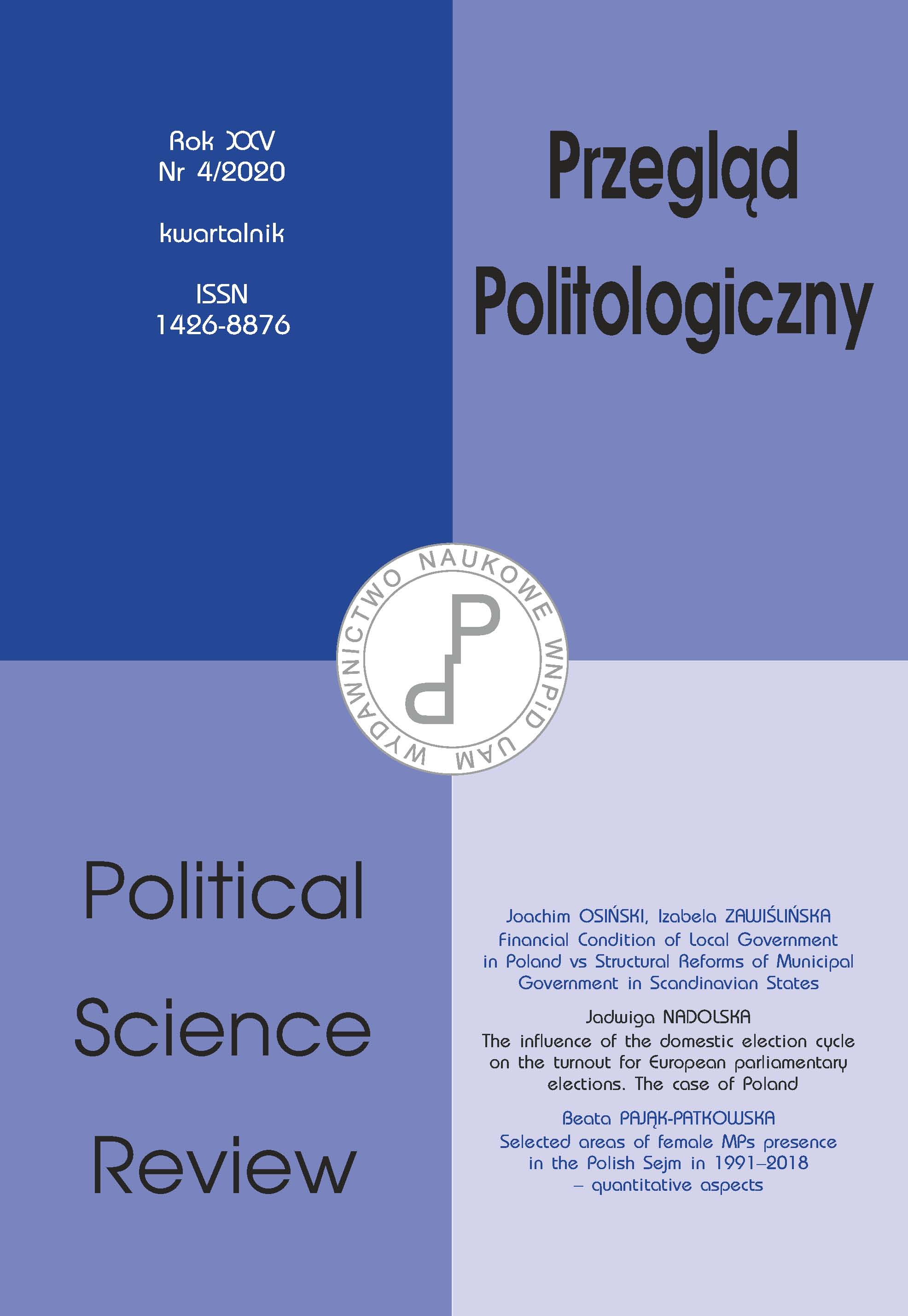Independence referenda in Catalonia and their political significance
Independence referenda in Catalonia and their political significance
Author(s): Elżbieta LesiewiczSubject(s): Politics, Public Administration, Public Law
Published by: Uniwersytet Adama Mickiewicza
Keywords: Catalonia; Spain; independence referenda; separatist tendencies; coronavirus pandemic
Summary/Abstract: The article discusses two independence referenda of 2014 and 2017, which have been declared illegal by the Spanish government and the Constitutional Court. The referenda have shown that the majority of Catalans to establish their own state. The article presents historical conditions of the Catalan independence movement, analysis of referenda outcomes, and the impact of the 2020 pandemic on the independence movement. Methods used include institutional and legal analysis, system analysis and historical genetic method. The methods have proven that to a large extent historical factors and the 2008 economic crisis contributed to independence tendencies in Catalonia. All these facts contributed to the growing support for the independence among Catalans. This has been proven by outcomes of two independence referenda. The first one of them was held on 9 November 2014 and the turnout was 2 million out of 5.4 million eligible citizens. As much as 80% of voters opted for independence. The turnout of the 2017 referendum was 42.3% out of 5.34 million, and 90% of 2.26 million citizens participating in the referendum opted for independence, whereas 8% were against. The referenda showed that independence trends in European regions were still valid, since separatists might even use the crisis caused by the 2020 pandemic to support they independence struggle.
Journal: Przegląd Politologiczny
- Issue Year: 2020
- Issue No: 4
- Page Range: 73-85
- Page Count: 14
- Language: English

